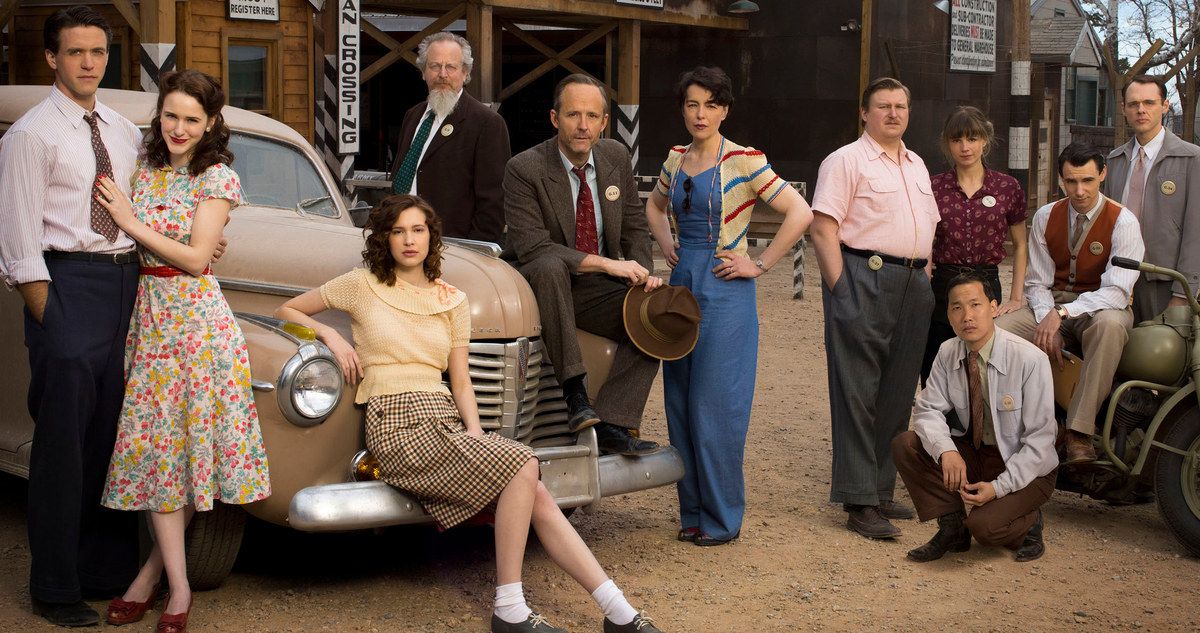WGN America has released the trailer for their second original series, Manhattan, which comes on the heels of their successful horror drama Salem, already renewed for Season 2. Manhattan is based on the true story of The Manhattan Project, a group of scientists who gathered in Los Alamos, New Mexico in 1943 to create the atom bomb. Instead of centering on actual historical figures such as General Lesley Groves and Richard Feynman, Manhattan is told through fictional characters, although the project leader, Robert Oppenheimer, will be featured as a recurring character. Take a look at the new footage before the series debuts with the Pilot episode on Sunday, July 27 at 10 PM ET, then read on for more details from series creator Sam Shaw
Sam Shaw revealed in an interview with USA Today that despite the 1940s period setting, there are still issues presented in Manhattan that are relevant today.
"I did a lot of research and what I found is that when you read about the history of the military-industrial complex in this country and the birth of military secrecy, all roads lead back to the New Mexico desert. It came to feel like the fundamental origins story of 21st-century America and the world in a way. It was the moment when this one America ceased to exist and another was born."
He also added that some scientists have moral objections to working on the atom bomb, but others don't.
"I don't think it's the objective of this show to make a statement about the morality of the bomb or adjudicate. There's an incredibly complicated set of moral and existential questions connected to this moment, when America became a superpower."
Thomas Schlamme revealed that the show is not trying to be a "docudrama," with real historical figures referenced throughout the show, although the main focus is on fictional characters.
"It wasn't so much about telling the factual truth, but telling the emotional truth of what was going on there, what it felt like to be in this place where once you entered, you couldn't leave; what if felt like to be transported from a rather traditional lifestyle into this kind of a POW camp that was all in transition, with no sidewalk, no addresses. What would that be like for the individual who went there? Where did the kids go to school? What did your family life feel like? What was your relationship to your co-workers? What was the level of competition? And what did those secrets do to you? Those are the stories that haven't been told about Los Alamos."

